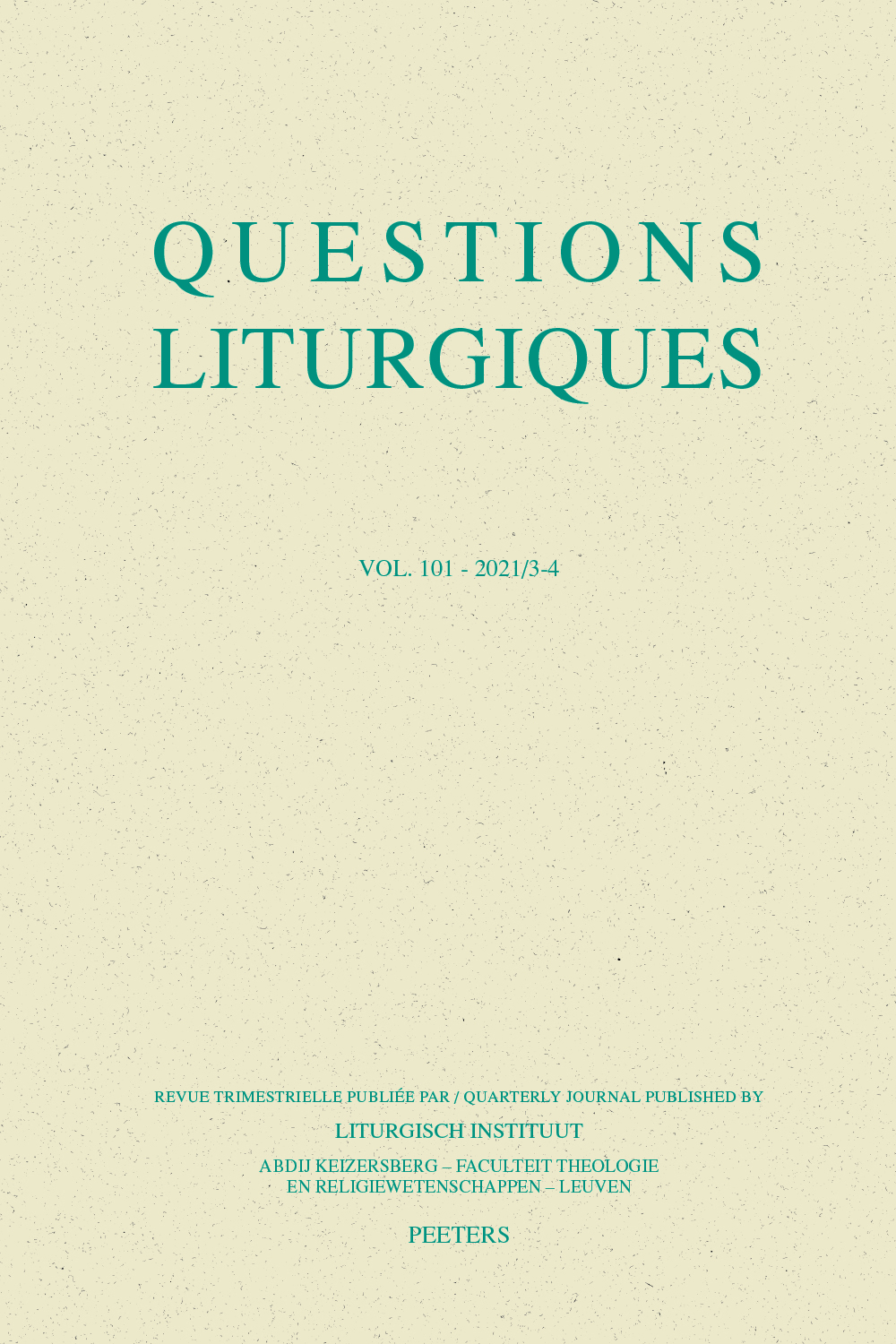 previous article in this issue previous article in this issue | next article in this issue  |

Preview first page |
Document Details : Title: The Latin Vulgate as an 'Auxiliary Tool' of Translation Subtitle: Historical Perspectives on Liturgiam Authenticam Author(s): DY, Oliver G. Journal: Questions Liturgiques/Studies in Liturgy Volume: 97 Issue: 3-4 Date: 2016 Pages: 141-170 DOI: 10.2143/QL.97.3.3197403 Abstract : Liturgiam authenticam (2001) has recently designated the Latin Vulgate as an 'auxiliary tool' in the production of the vernacular texts of Scripture for liturgical use. This article discusses four historical points of context to consider in relation to this translational recourse to the Vulgate: 1) the evolved role and place of the Vulgate in the history of Catholic Bible translation; 2) the preconciliar liturgical practice on the vernacular Scriptures; 3) the meaning of the qualifying adverb 'especially' in Dei Verbum 22’s instruction to translate Scripture 'especially from the original texts of the sacred books'; and 4) the absence of Trent’s vocabulary of 'authenticity' in Vatican II’s discourse on the Vulgate. All these altogether point to the relativization of the Vulgate in the contemporary work of Catholic Bible translation. While technically allowed and while it reasserts the traditional role and place of importance of the Vulgate in the life of Latin Church, the choice to use the Vulgate in the textual production of the Scriptural texts in the vernacular liturgical books is likely to hinder rather than facilitate the ecumenical agenda of Vatican II. Liturgiam authenticam (2001) a récemment désigné la Vulgate latine comme un «outil auxiliaire» dans la production des textes vernaculaires de l’Écriture pour l’usage liturgique. Cet article traite de quatre points historiques sur le contexte à considérer en relation avec ce recours à la Vulgate dans le processus de traduction: 1) le rôle et la place évolués de la Vulgate dans l’histoire de la traduction catholique de la Bible; 2) la pratique liturgique préconciliaire sur les Écritures vernaculaires; 3) la signification de la locution adverbiale «de préférence» dans l’instruction de Dei Verbum 22 de traduire l’Écriture «de préférence des textes originaux des livres sacrés» et 4) l’absence du terme «authenticité» cher à Trente dans le discours de Vatican II sur la Vulgate. Tout cela montre la relativisation de la Vulgate dans l’œuvre contemporaine de traduction catholique de la Bible. Bien que techniquement autorisant et réaffirmant le rôle traditionnel et le lieu d’importance de la Vulgate dans la vie de l’Église latine, le choix d’utiliser la Vulgate dans la production textuelle des textes scripturaux dans les livres liturgiques vernaculaires est susceptible d’entraver plutôt que de faciliter l’agenda œcuménique de Vatican II. |
|


